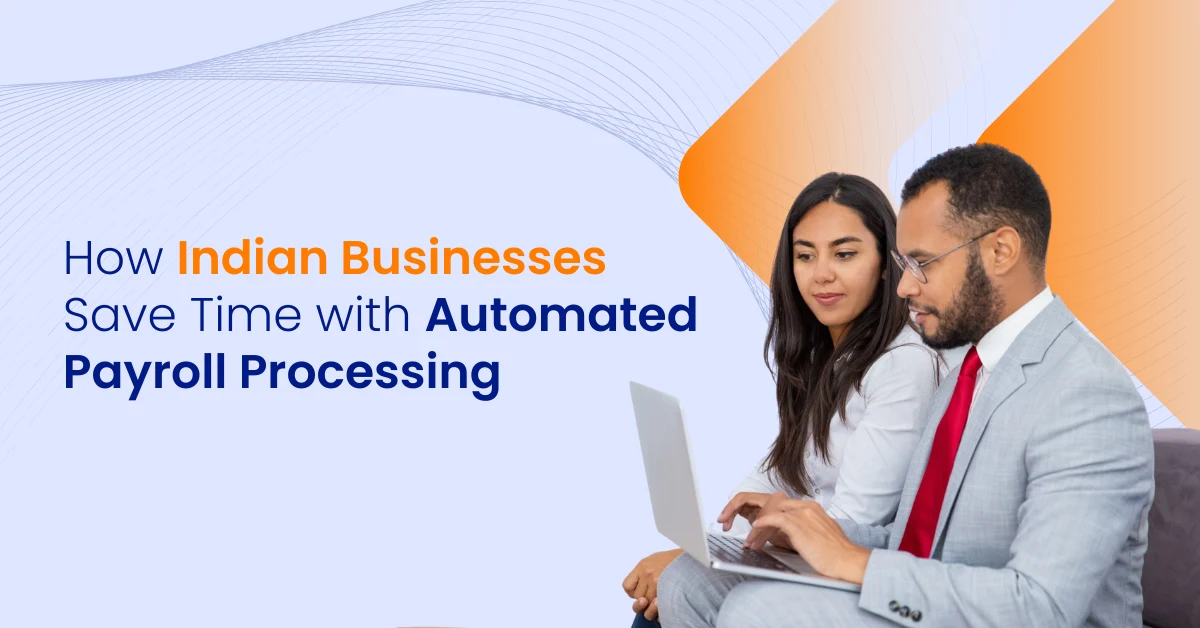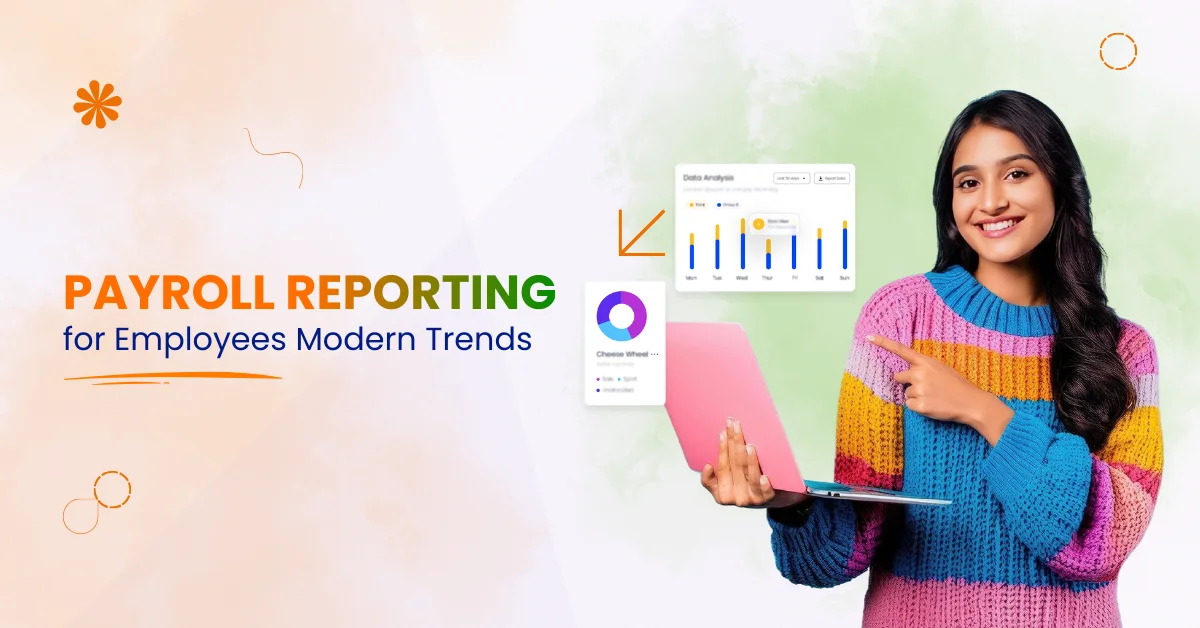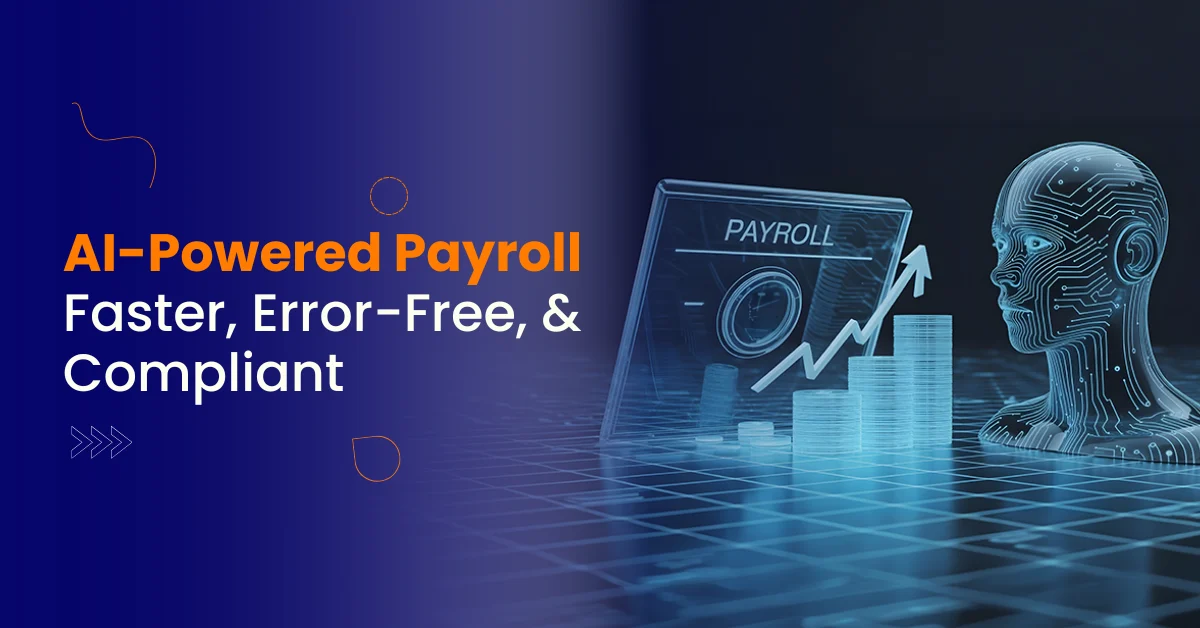Introduction to Payroll Processing
- Payroll processing in India involves managing salaries while ensuring compliance with tax laws and labor regulations.
- A smooth payroll process helps maintain employee trust and prevents legal complications.
- The payroll system must handle multiple deductions, statutory requirements, and evolving tax rules. Payroll management in India is becoming more complex due to changing tax laws and multiple state regulations.
- Understanding payroll processing is essential for startups and large enterprises to run hassle-free businesses.
Understanding Indian Payroll
- Indian payroll processing is complex due to various tax deductions, including professional tax and income tax.
- Payroll software helps simplify the payroll process and ensures compliance with tax laws. Many companies in India still rely on spreadsheets or outdated tools to manage payroll.
- Automated payroll systems reduce errors and enhance efficiency in payroll operations.
- Payroll management involves calculating payroll, managing payroll, and ensuring timely and accurate payments.
Automated Payroll System
- An automated payroll system streamlines payroll processes, reducing manual effort and errors.
- Automated payroll software handles payroll calculations, tax filings, and employee data seamlessly. Some payroll tools now use AI to detect unusual salary changes or compliance issues before they turn into errors.
- The right payroll software ensures compliance with Indian tax laws and labor regulations.
- Automated payroll solutions provide accurate payroll processing and improve payroll efficiency.
Payroll Records and Data Security
- Payroll records and data security are critical for businesses in India to prevent data breaches.
- Sensitive employee data, including bank details and employee information, must be protected.
- Automated payroll systems provide secure storage and management of payroll data.
- Employee self-service portals allow employees to access their payroll information securely.
Employee Attendance and Information
- Employee attendance and information are essential for accurate payroll processing.
- Automated payroll systems integrate with attendance management systems to ensure accurate payroll calculations. Managing employee timesheets accurately, especially in complex organizational structures, poses a challenge.
- Employee data, including salary details and tax declarations, must be accurate and up-to-date.
- Payroll services providers can help businesses manage employee information and attendance.
HR Management and Automated Payroll
- HR management involves managing employee compensation, benefits, and payroll.
- Automated payroll systems integrate with HR management systems to streamline payroll processes.
- Payroll automation helps HR teams focus on core activities, improving employee satisfaction.
- Automated payroll software provides real-time reporting and analytics for better HR management.
Improving Payroll Efficiency
- Improving payroll efficiency is crucial for businesses in India to reduce costs and enhance productivity.
- Automated payroll systems help reduce manual errors and improve payroll accuracy.
- Payroll processing in India can be simplified using automated payroll software.
- Timely and accurate payments are essential for employee satisfaction and business operations.
Indian Businesses and Payroll Challenges
- Indian businesses face various payroll challenges, including complex tax laws and labor regulations.
- Payroll expenses, including salary calculations and tax deductions, must be managed accurately. Payroll errors are a common problem for businesses in India.
- Automated payroll systems help businesses in India comply with Indian tax laws and regulations.
- Payroll service providers can help businesses navigate payroll complexities.
Implementing Automated Payroll
- Implementing automated payroll requires careful planning and execution.
- Businesses must choose the right payroll software and automated payroll system. Integrating disparate payroll input sources can present logistical challenges.
- Payroll automation involves integrating payroll processes with HR management and attendance systems.
- Training payroll professionals is essential for successful automated payroll implementation.
Benefits of Automated Payroll
- Automated payroll provides numerous benefits, including improved payroll efficiency and accuracy.
- Automated payroll systems reduce manual errors and enhance compliance with tax laws. Automated payroll systems save time for HR teams and business owners who can focus on other important tasks.
- Payroll automation helps businesses focus on core activities, improving productivity and employee satisfaction.
- Automated payroll software provides real-time reporting and analytics for better decision-making.
Payroll System Options
- Businesses in India have various payroll system options, including automated payroll software and manual payroll processing.
- Choosing the right payroll system is crucial for accurate payroll processing and compliance. Cloud-based payroll systems are gaining popularity due to their flexibility and security.
- Payroll systems must handle multiple deductions, statutory requirements, and evolving tax rules.
- Automated payroll systems are more efficient and accurate than manual payroll processing.
Best Practices for Payroll Processing
- Best practices for payroll processing include ensuring accurate employee data and timely payments.
- Payroll processing in India requires compliance with tax laws and labor regulations. Double-checking calculations and utilizing automated payroll systems can help mitigate risks of payroll calculation errors.
- Automated payroll systems help businesses follow best practices and improve payroll efficiency.
- Regular audits and reviews are essential for ensuring accurate payroll processing.
Adopt best practices with Bharat Payroll’s comprehensive payroll management platform. Book a free demo and enhance your payroll accuracy.
Future of Payroll Processing
- The future of payroll processing involves increased automation and digitalization.
- Automated payroll systems will continue to simplify payroll processes and improve efficiency.
- Payroll processing in India will require compliance with evolving tax laws and regulations.
- Businesses must adapt to changing payroll requirements and technologies.
Conclusion
- Payroll processing in India is complex and requires careful management.
- Automated payroll systems simplify payroll processes, improve efficiency, and enhance compliance.
- Businesses in India must choose the right payroll software and automated payroll system.
- Payroll automation is essential for accurate payroll processing, employee satisfaction, and business operations.
Transform your payroll management today with Bharat Payroll’s AI-enabled solutions.
Frequently Asked Questions (FAQs)
Q1: How does automated payroll processing save time for Indian businesses?
Automated payroll processing reduces manual data entry and calculations, allowing businesses to process payroll with just a few clicks. This leads to faster salary processing and fewer errors, saving valuable time.
Q2: What are statutory deductions in payroll processing?
Statutory deductions include mandatory contributions such as Provident Fund (PF), Employee State Insurance (ESI), professional tax, and Tax Deducted at Source (TDS) that must be deducted from employee wages as per Indian tax regulations.
Q3: How does payroll automation ensure tax compliance?
Automated payroll systems update tax calculations automatically based on the latest tax laws and compliance requirements, ensuring accurate tax filings and reducing the risk of penalties.
Q4: Can automated payroll systems handle complex salary structures?
Yes, automated payroll software can manage diverse salary components, including gross salary, allowances, bonuses, and deductions, ensuring accurate net pay calculations.
Q5: How is employee data protected in automated payroll systems?
These systems use secure data storage with encryption and controlled access to protect sensitive employee details, including bank details and payroll transactions.
Q6: What benefits do employee self-service portals provide?
Self-service portals allow employees to access their payslips, tax declarations, and salary details anytime, improving transparency and reducing HR workload.
Q7: Are automated payroll systems suitable for small businesses?
Absolutely. Automated payroll solutions are scalable and affordable, helping small businesses improve payroll processing accuracy and compliance without extensive manual effort.
Q8: How do automated payroll systems integrate with HR management?
They seamlessly connect payroll operations with HR management and attendance systems, streamlining data flow and improving overall payroll efficiency.
Q9: What are the consequences of non-compliance with payroll tax regulations?
Non-compliance can lead to fines, penalties, and legal issues. Automated payroll systems help businesses stay compliant with tax regulations by ensuring timely and accurate deductions and filings.
Q10: How can businesses improve payroll processing using automation?
By adopting automated payroll systems, businesses can minimize errors, ensure legal compliance, speed up employee payments, and maintain accurate payroll records efficiently.






